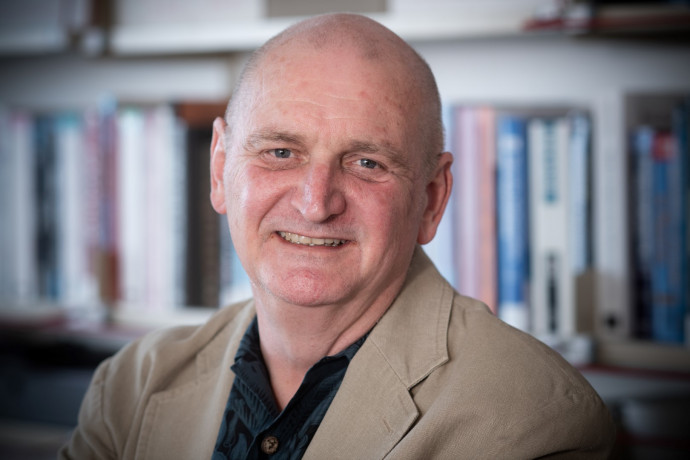News
Published 17 October 20182018 Hector Medal: Wormholes, black holes and other subjects of gravity

Mathematical physicist Professor Matt Visser FRSNZ has been awarded the Hector Medal by Royal Society Te Apārangi for his research into both classical and quantum gravity, including work on black holes, cosmology and “analogue spacetimes”.
Based at the School of Mathematics and Statistics at Victoria University of Wellington, Professor Visser’s research addresses foundational issues in Einstein's general relativity and its interface with quantum physics.
He has published widely on both black holes and traversable wormholes, including contributions to Stephen Hawking's "chronology protection conjecture", which hypothesises that the laws of physics are such to prevent time travel on all but the minutest of timescales. Matt presented a plenary talk on this subject at Stephen Hawking's 60th birthday conference at Cambridge University in 2002.
Matt’s work on "analogue spacetimes" specifically seeks to model the Hawking evaporation of general relativity black holes in simpler "analogue" systems more amenable to experimental investigation.
His book Lorentzian Wormholes: From Einstein to Hawking was published in 1996 and he has edited four other books – including a book specifically focussed on both theoretical and observational aspects of the rotating black holes discovered in 1963 by Emeritus Professor Roy Kerr (University of Canterbury).
Matt has published over 200 scientific articles in international journals, and is very well known internationally. His scientific articles cover a wide range of topics, from the observed cosmographic expansion of the universe, to dynamical models specifically based on Einstein's general relativity, through to extensive work on the way classical black holes interact with quantum physics.
In awarding this medal, the selection committee noted that in addition to his outstanding research outputs, he has been an exceptional supervisor of numerous graduate students and postdoctoral fellows. “He demonstrates an ability and a willingness to communicate the most difficult and fundamental ideas of modern mathematical physics in a clear and accessible way.”
In accepting the award, Matt paid tribute to his parents, both now deceased, who were part of the 1950s Dutch migration to New Zealand. “They were not at all academic, with no education beyond high school, but they provided an amazing environment for me and my siblings to grow up in and they would have been very proud.”
“It is particularly gratifying to have over the years obtained both local (New Zealand) and international recognition for my research efforts.”
In 2009 he was elected Fellow of the American Physical Society. He was elected a Fellow of the Royal Society of New Zealand in 2006 and the New Zealand Institute of Physics in 2011. He also received a James Cook Research Fellowship from Royal Society Te Apārangi in 2011. In 2013 he was awarded the Dan Walls Medal of the New Zealand Institute of Physics.
Hector Medal:
For outstanding work in chemical, physical sciences, or mathematical and information sciences
Citation:
To Matt Visser for his internationally recognised research on black holes, cosmology, quantum physics, and "analogue spacetimes".
